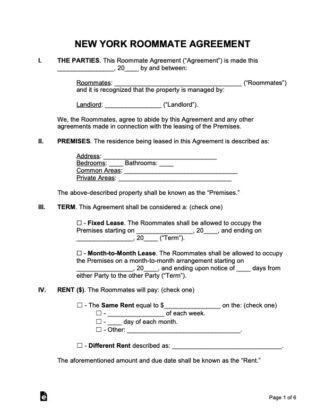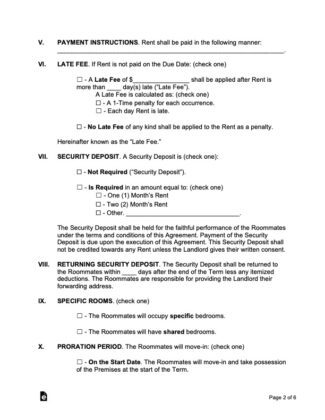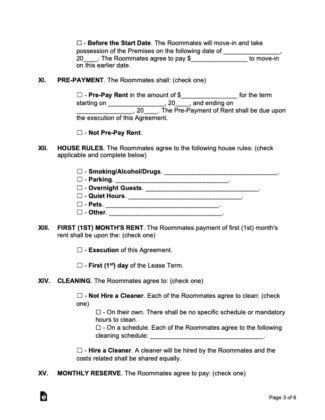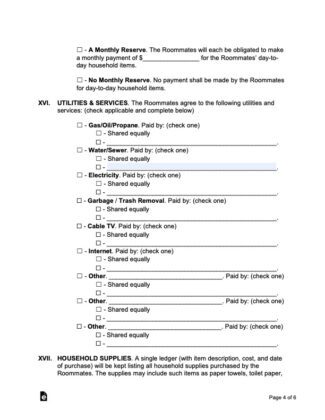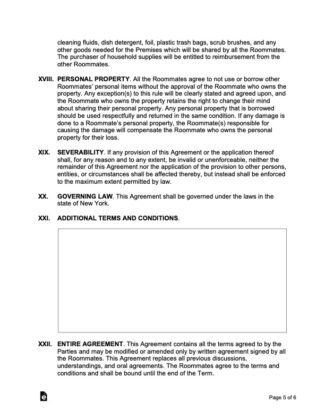Want to be featured in this series? Are you a current or former real estate agent who can answer common NYC renter questions and provide insider info? Reach out to [email protected] with your topic.
When I was a real estate agent in the 2010s, my office manager would urge me to target NYC’s burgeoning roommate population. Roommates were, after all, a big business in Manhattan real estate. They continue to be today, with 30 percent of adults aged 23 to 65 sharing apartments in NYC, as reported by Zillow in 2017.
Unlike my discerning clientele of wealthy COOs and socialites, these roommates were usually young professionals fresh out of college, looking to make their mark on the world. Their flexible apartment criteria meant you could rent them almost anything, from a shoe box in the West Village to a closet in Tribeca.
They hit the pavement with a pep in their step, armed with offer letters signed by their newest employers, searching for the perfect place to share with friends and strangers alike.
As someone who has lived with friends and strangers myself, not only did I engage in common roommate disagreements, but I also had a front-row seat to the bickering and antics of others. From splitting the rent unevenly to squabbling over long-term guests, I’ve heard it all.
Here are some common disagreements among roommates that I’ve come across in my years working in Manhattan real estate:
Rent & Utilities: Who Pays For What?
Rent is expensive in NYC. And utilities can add up quickly, too. Landlords will likely include heat and water, but electricity, gas, and internet are typically not included in the rent. This can be a source of common roommate disagreements in NYC because — let’s face it — some people are better at conserving energy than others. Just ask Roommate A, who isn’t bothered by NYC’s hot summer nights and has to split the electric bill evenly with Roommate B, who leaves the AC blasting 24/7. Or Roommate C who runs the washer and dryer every other day, while Roommate D only does laundry once every two weeks.
Another common roommate disagreement in NYC is who pays for household items like toilet paper, paper towels, and cleaning supplies. If Roommate B stocks up at Duane Reade this week, should Roommate C be expected to cover the same amount next week?
Disagreements may also arise if one roommate expects the other(s) to divide the rent equally even though the bedrooms are not equal in size. This issue comes up commonly in converted two- or three-bedroom apartments where one bedroom is significantly smaller than the other or has a pressurized wall that doesn’t go up to the ceiling, eliminating privacy.
In my humble experience, it seems unreasonable to divvy up the rent equally for bedrooms that are not equal in size or have different amenities, such as en-suite bathrooms and walk-in closets. It also feels petty to fight over who pays for what household items. After all, common sense dictates that if you use more of something, you should replace it.
One way to solve the issue of rent is to have each roommate pay proportionally based on the size of each room and/or any additional amenities it comes with. (Common areas like living rooms and bathrooms needn’t be factored into this equation since their equal usage is implied.)

Those who are math-averse (like me) may use a rent-splitting app like Splitwise, which allows roommates to input their monthly rents and then add or subtract common expenses to see who owes what.
House Chores: Who Cleans What and When?
Another common source of roommate disagreements in NYC is house chores. Who cleans the bathroom? Who takes out the trash? Who does the dishes? And when?
These are valid questions that should be answered before signing a lease. Some people are neat freaks and can’t stand living in a messy apartment without so much as a coaster to prevent those pesky rings from forming on the coffee table. Others couldn’t care less.
One possible solution to this common roommate problem in NYC is to create a rotating cleaning schedule (which may or may not cling to a refrigerator magnet in the kitchen). For example, this week Roommate A cleans the bathroom, Roommate B takes out the trash, and Roommate C does the dishes. Then next week, the roles are reversed.
Another solution is to budget for a professional cleaning service to come in once a week or once every two weeks. This can be pricey, but it’s worth it to avoid common roommate disagreements in NYC.
Roommate Guests: Who Can Have Them, and For How Long?
Guests are another common source of tension among roommates. Some people are social butterflies and will manifest a constant stream of visitors, while others prefer to keep their socializing to a minimum.
More on CitySignal:
One of the most challenging aspects is hosting out-of-town relatives for long periods. The roommates imposing said relatives may brush off the inconvenience (because it is not inconvenient to them), claiming that this is how things are done in their respective cultures or within their unique family dynamic, leaving the other roommates seething with resentment.
Still, others will straight-up add another roommate to the mix by moving their significant other in without so much as a discussion with the other people they live with. Sometimes they move them in facetiously or by attrition as if to say, “Whoopsie! I hope you don’t mind that I added my boyfriend to the lease!” Or perhaps it’s the boyfriend who just won’t go home because his roommates are constantly disagreeing.
The common thread here is a lack of communication among roommates about expectations, boundaries, and common courtesy. One solution is to discuss guests and significant others before signing the lease. That way, everyone is on the same page from the start.
Solution 2.0 is to sign a legally-binding Roommate Agreement (yes, that’s a thing), which stipulates the rules about guests, house chores, common areas, etc.
Templates for this agreement can be found online, or you can create your own. Either way, make sure that everyone signs the agreement before moving in, so there’s no confusion about expectations later on.
Decor: Who Gets to Decide?
Let’s say you move in with Roommate A whose giant neon red-and-white Budweiser sign can only fit on the living room wall. It clashes horribly with Roommate B’s faux fur reading chair and Roommate C’s DIY industrial-pipe coffee table. Don’t even get me started on the cow-hide rug in the middle of the room (a gift from Roommate A’s mom).
A possible solution to common roommate disagreements about decor is to create an inventory of who owns what before moving in and whether or not they’re open to selling, trading, or giving away their belongings. That way, everyone knows what they’re getting into and there are no surprises (or arguments) down the road.
Another solution is to allow each person to decorate their bedroom however they want but to come to a consensus about common areas like the living room, kitchen, and bathroom. It’s important to be respectful of everyone’s taste when discussing potential arrangements and to be flexible with decor items, including the neon Budweiser sign from Roommate A’s college days.
Communication: The Key to Avoiding Roommate Disagreements
Our last common roommate disagreement in NYC is about communication (or the lack thereof).
It’s common for roommates to avoid conflict at all costs. Some will go so far as to move out when the other roommates are away for the holidays or on vacation. Others will text each other when they’re in the same apartment (in different rooms) to avoid an in-person conversation that may quickly escalate into a full-blown argument or fight.
This, of course, is not a sustainable solution to common disagreements among roommates in NYC.
The key to avoiding these scenarios is to communicate with each other openly and honestly about your expectations, needs, and wants. Perhaps it’s even more important to make it safe for your roommates to express their needs and wants without fear of judgment or retaliation, as one serial roommate learned in the aftermath of her experience, which included over 30 co-living situations.
Sometimes communicating before you sign the lease can help you find the perfect roommate to share your space. Other times, it’s helpful to have a monthly or quarterly check-in to see how everyone is doing and to identify any potential problems before they fester and become bigger issues.
With these solutions in mind, common roommate disagreements in NYC don’t have to be a cause for stress or anxiety. On the contrary, they can be a bonding experience that brings you closer to the people you live with, especially in a post-pandemic world where many are spending more time at home than ever before.
Ivan Suazo is a copywriter and SEO blogger with over ten years of experience in the real estate industry. He's also the founder of a wellness blog, QWERTYdelight.com, and writes sleep stories for the Slumber App.



